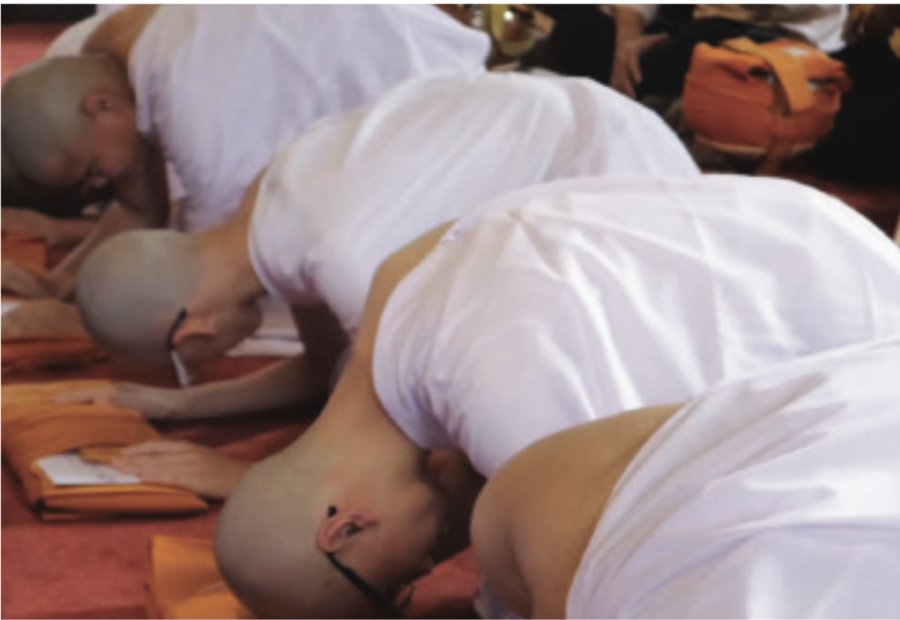Junior student spends summer as a monk
Silpol Dhiantravan ordained novice buddhist monk
Last summer, junior Silpol Dhiantravan became a novice monk, known as a samanera, at Wat Bowonniwet Vihara in the center of Bangkok, Thailand.
During a month-long ordination, Dhiantravan stayed in the temple and lived the life of a monk which included begging for food, praying, and meditation.
“I thought it would be a different experience that I wouldn’t really find elsewhere. It wasn’t like a camp or an internship because this was just a completely different world where I thought that, even though I’m not religious, I could get something out of it or learn something if I really committed to it,” Dhiantravan said.
In Thailand it has become traditional to have a son ordained as a monk. This is believed to bring the family good luck.
Dhiantravan’s aunt, had connections with people close to the temple and helped arrange for him to stay there.
However, before he could become ordained, he had to prepare for his summer training. “I prepared for about an hour each week for a month. The preparation while I was in America was memorizing a 12 minute chant, that was required for the ordination, and practicing sitting meditation for hour-long periods,” Dhiantravan said. A challenge for Dhiantravan was the fact that he couldn’t read Thai. This made the preparation difficult because he had to learn the chants by listening to them, and the tones were also different from spoken Thai.
“When I got to the temple, I spent two days at the temple just living there as preparation to make sure I could do everything and adjust to living there,” Dhiantravan said.
Dhiantravan found the experience to be far more rewarding than he expected.
“I got a lot more out of it than I expected because I really committed to being a monk and learning as much as I could about their life. It became really fun and relaxing as I got more accustomed to the lifestyle,” Dhiantravan said.
Part of the ordination was helping clean the dining room and sidewalks in the temple. Dhiantravan would wake up early to aid the helpers with setting the tables before they begged for food, and also cleaned afterwards.
“Aside from learning of the benefits of meditation, I learned that if you do your job, people will see that. Often times, the senior monks would often talk amongst themselves and with visitors about how I would clean and help around a lot,” Dhiantravan said.
Dhiantravan aligned with many of the principles taught by the Buddha, but doesn’t follow Buddhism as a religion.
“Buddhism should be more of a set of teachings rather than a religion, because you shouldn’t need to believe that you will go to heaven to be a good person. It’s not something that needs to be taught in a religious setting, rather these are things that I think parents should be teaching,” Dhiantravan said.
One thing that stuck with Dhiantravan was that he could learn at least one thing from anyone he talked to.
“I spent my time there constantly finding senior monks to talk to and ask questions about the purpose of ordination and the lessons of Buddhism, and I always walk away with at least some small lesson from that conversation,” Dhiantravan said.
Dhiantravan does not plan to pursue being a monk right after leaving New Trier but may consider it later on.
“I might go back to ordain as an adult monk later in my life, but it would be at a forest temple or in Myanmar or India, where it would really be challenging and I would have to focus a lot on meditation,” Dhiantravan said.







































